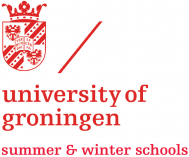11 July 2024
on course website
Developing Across Differences: Collaborative DEI
Collaborative DEI—internally across all elements of the organisation and externally with customers and other stakeholders—serves two mutually reinforcing purposes that allow organisations to model what they aspire to achieve.
Join this course so you, together with all stakeholders, can better participatively develop collaborative DEI strategies that align with evidence-based DEI best practices.
Why Attend?
Organisations can implement DEI initiatives in an attempt to actually make an impact…or simply to be seen as making an impact. In the case of the latter, organisations are half-heartedly paying lip service to DEI while creating none to little real positive outcome.
For organisations serious about making their environments more equitable by understanding and leveraging diversity and promoting inclusion, DEI works best when it is a collaborative undertaking across the entire organisation. This has an additional benefit of allowing organisations to improve how they work cross functionally and in different configurations.
In this two-day course, you will examine six crucial steps for collaborative DEI, from following a systemic process and roadmap to guide the DEI journey and create sustainability to integrating diverse values into the culture, systems, and policies of an organisation.
Join this course to help your organisation—or those of your clients if you are an external consultant—gain tools for:
- Self-awareness and introspection on blind-spots related to Diversity, Equity & Inclusion,
- Creating an inclusive culture using the 15 different categories in the Global Diversity Equity & Inclusion Benchmarks,
- Personal commitments and concrete action planning to foster greater inclusion.
Course leader
Nene Molefi
Target group
Level requirements
The DAD is for multipliers who help individuals, organizations and societies better recognize, appreciate and use differences as a way of better communicating, working and thriving together.
These are (in-house and external) trainers, educators, consultants, coaches, researchers, scholars, facilitators, HR staff, advanced-level (MA+) students, and professional development specialists with 5+ years of experience/study in the greater Differences field. Contact the organisers at ic@rug.nl or info@iddifferences.org for consultation about appropriateness and eligibility.
It is expected that the participants have a sufficient command of the English language to actively participate in the discussions and to present their own work in English.
Participant profile
This course is for you if are a consultant/trainer/multiplier/educator with 5 or more years of experience in the greater Differences field who:
- Leads or significantly supports the planning and/or implementation of an intercultural development training or education initiative for a corporation, educational institution, governmental department, healthcare facility, NGO or similar.
- Already understands the fundamentals of intercultural competence with emphasis on individual level development and are ready to go further.
Course aim
In this course, you will learn how to help yourself and those you work with so that you/they can better:
1. Appreciate the concepts of Rank, Power and Privilege and how one can use rank positively to effect change and advance DEI.
2. Recognise the impact of Unconscious Bias and the words leaders use (intent vs impact).
3. Understand the importance of inner (individual) work as a foundation for leading inclusively.
4. Identify and discuss barriers to leading inclusively and to develop individual and group commitments to address these barriers.
5. Integrate a ‘Head, Heart and Hands’ approach in leading transformation, diversity, and inclusion.
6. Work holistically and collaboratively on DEI within an organisation across functionals and departments.
Credits info
Workload
12 hours of in-class learning and active participation using experiential methods.
Upon successful completion of the programme, the Summer School offers a Certificate of Attendance that mentions the workload of 12 hours (28 hours corresponds to 1 ECTS). Students can apply for recognition of these credits to the relevant authorities in their home institutions, therefore the final decision on awarding credits is at the discretion of their home institutions. We will be happy to provide any necessary information that might be requested in addition to the certificate of attendance.
Fee info
EUR 995: includes course and materials, optional evening programming
Register for this courseon course website

